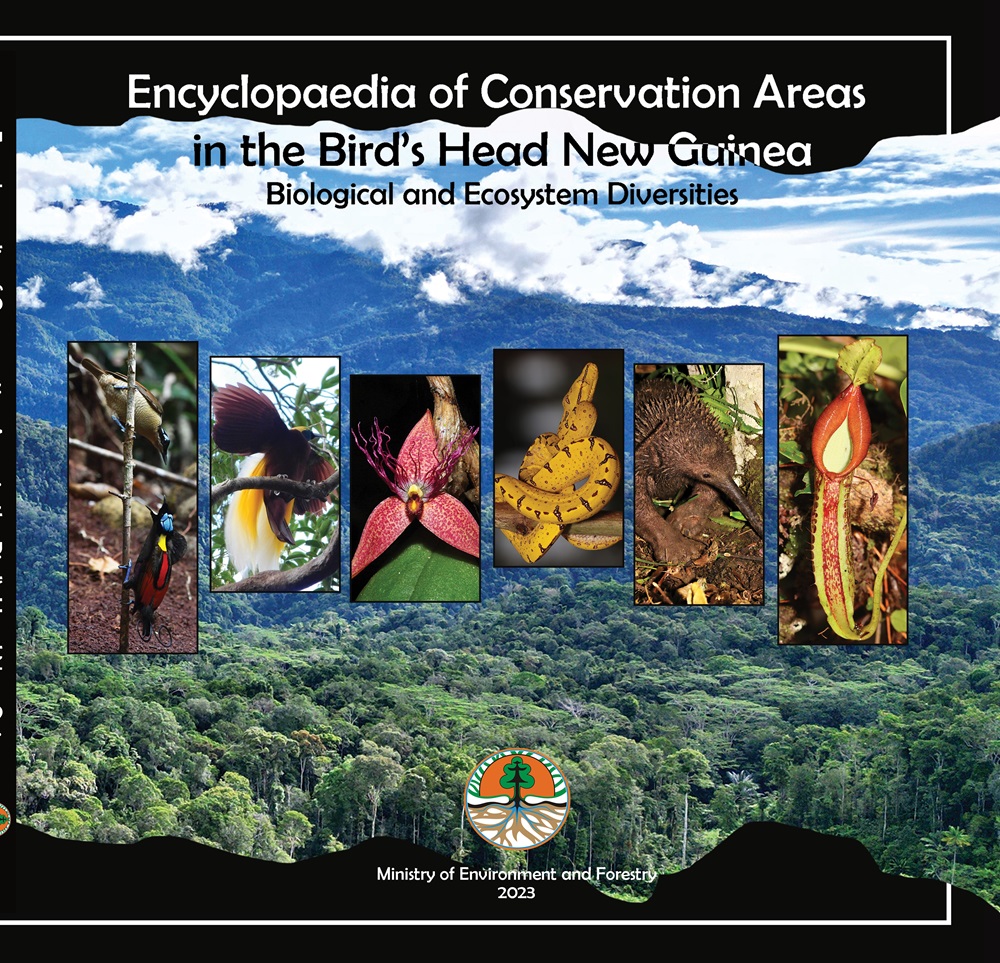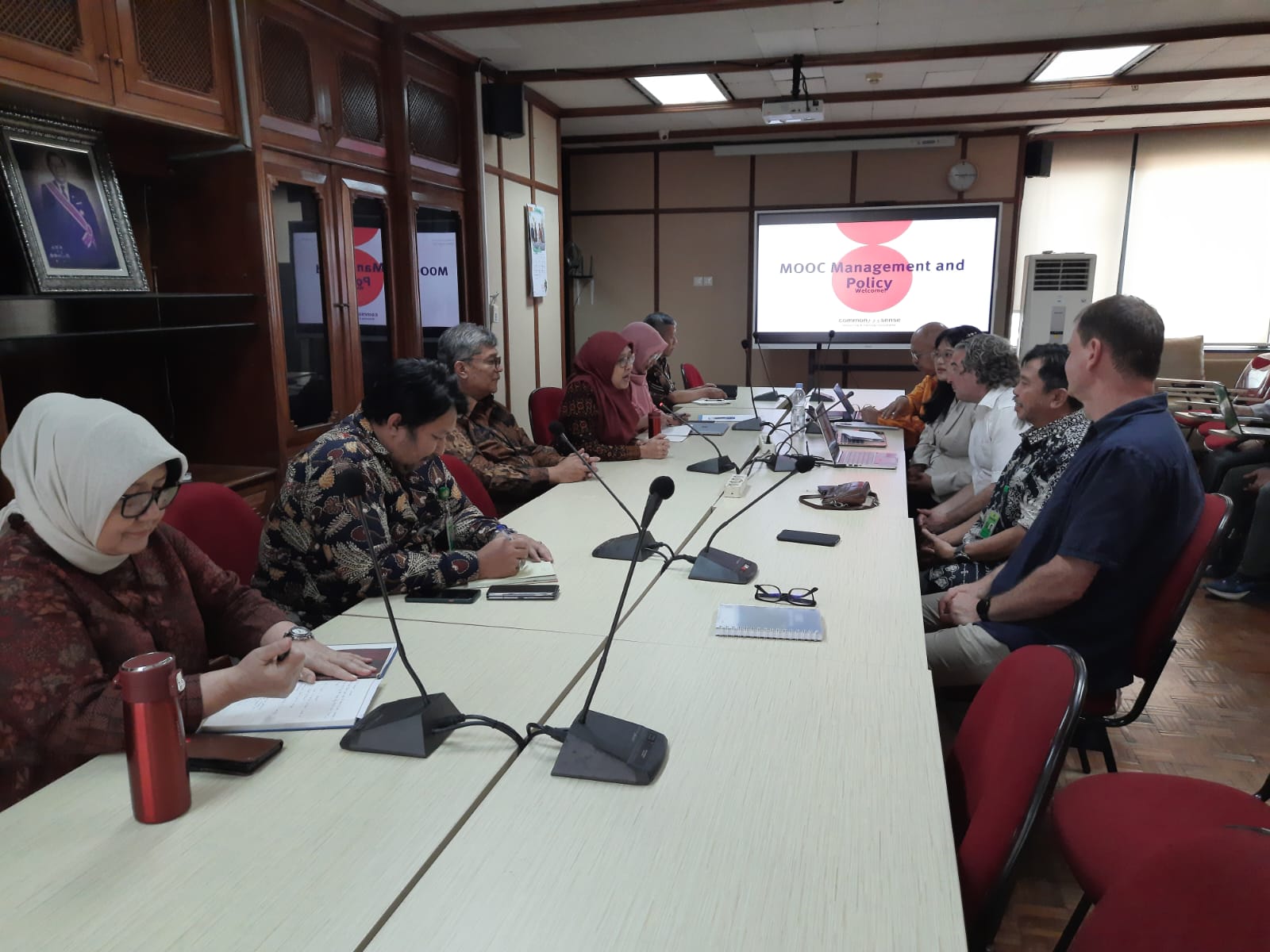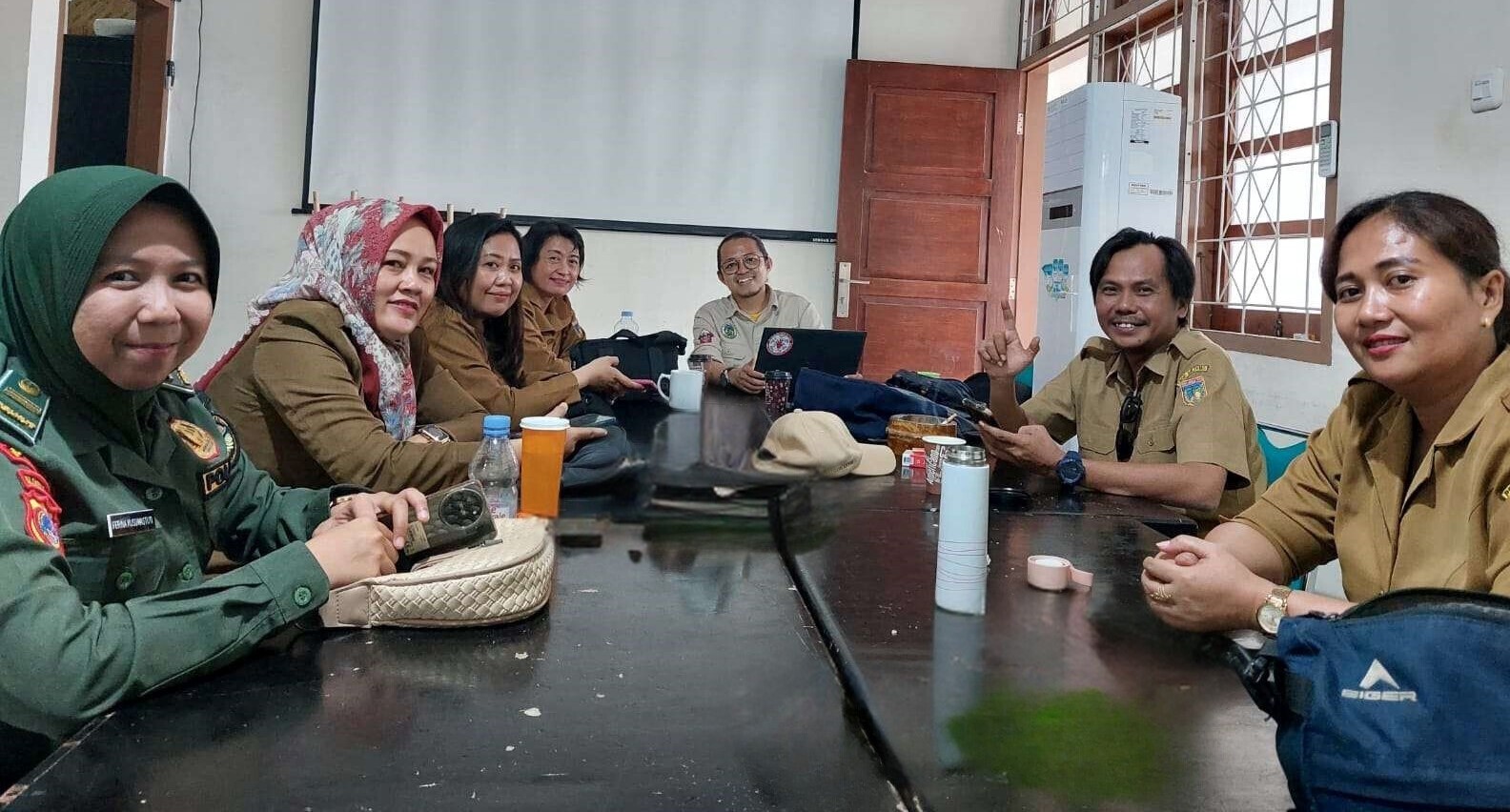FORCLIME
Forests and Climate Change ProgrammeTechnical Cooperation (TC Module)

Select your language

The West Papua Natural Resources Conservation Center (BBKSDA), one of the technical implementing units of the Ministry of Environment and Forestry that operates within West Papua Province, functions across a working area that comprises 28 specific conservation areas, both seascapes and natural landscapes. These conservation areas cover a total of around 1.7 million hectares, are located in the two provinces of West Papua and Southwest Papua and include various ecosystems that are rich in biodiversity and their relevant ecosystems. In addition, this area is inhabited by traditional peoples that lead diverse socio-cultural lives, while the natural and socio-cultural wealth of the area is considered an important asset that should be preserved and promoted among the wider community.
One effective form of promotion in this context is publication. As a result, FORCLIME is supporting BBKSDA West Papua as it publishes a new book on biodiversity and the local ecosystem entitled: Encyclopedia of Conservation Areas in the Bird's Head New Guinea: Biological and Ecosystem Diversities, which was launched on 12 July 2024 in Sorong, Southwest Papua by the Director of Species and Genetic Biodiversity Conservation at the Ministry of Environment and Forestry, Nunu Anugrah, S.Hut., M.Sc., and which was witnessed by Assistant III of the Regional Secretary of Southwest Papua Province, dra. Atika Rafika, M.Si, and the Head of the Regional Research and Innovation Agency of West Papua Province, Prof. Dr. Charlie D. Heatubun, M.Sc., FLS.
This book features general explanations of the 28 conservation areas that are being managed by the West Papua BBKSDA. These explanations are complemented by information and photographs of endemic and rare flora and fauna, including a number of critically endangered species such as the famous egg-laying mammal, the western long-beaked echidna (Zaglossus bruijnii), as well as the Raja Ampat endemic red bird-of-paradise (Paradisaea rubra), the lesser yellow bird-of-paradise (Paradisea minor), the bald bird-of-paradise (Cicinnurus respublica), the wiratno orchid (Bulbophyllum wiratnoi), the moi orchid (Dendrobium moiorum) and the Whitten orchid, which is endemic to the Karst (Bulbophyllum whitteniorum).
This book is expected to become a useful resource among the wider community and is likely to be used by researchers, policymakers, tourists, NGOs, universities and so on.
For more information, please contact:
Laurensia Mapandin, Junior Adviser for Forestry and Biodiversity Conservation
Mohammad Sidiq, Strategic Area Manager for Sustainable Forest Management and Coordinator for Tanah Papua

To report on the progress of eLearning development at the Environment and Forestry HR Training Center, which is being supported by GIZ, FORCLIME was granted an audience with the Head of the Human Resources Extension and Development Agency (BP2SDM) at the Ministry of Environment and Forestry, Drs. Ade Palguna Ruteka, at the Manggala Wanabakti Building, Jakarta on 5 July 2024. In attendance at the meeting were the Head of the Environmental Training Center, the Head of the Extension Center, the Head of the Environmental and Forestry Generation Training Center, the Secretary of BP2SDM, officials from the HR Planning and Development Center and the FORCLIME Team led by Mr. Florian Moder, the new FORCLIME Program Director, who has replaced Mr. Georg Buchholz.
During the meeting, FORCLIME reported that its collaboration with the Environment and Forestry HR Training Center (LHK HR Diklat Center) regarding the development of eLearning has been ongoing since 2013. In this regard, various capacity development efforts relating to the policy, organizational and individual levels at the Ministry HR Training Center and the Environment and Forestry (EF) Training Center (structural officials, graduate students and administrative staff) have been implemented during the course of the past decade. Indeed, even during the COVID-19 pandemic, the EF HR Training Center and the EF Training Center were still able to provide training services to apparatus and non-apparatus staff through the implementation of eLearning.
FORCLIME further reported that in 2023, the EF HR Training Center requested support for the development of a Massive Open Online Course (MOOC). This was subsequently followed up by FORCLIME, which put together a study that addressed the readiness of the EF HR Training Center to organize a MOOC in March 2024. The results of this study were able to provide a number of inputs that specifically addressed certain policy, managerial and technical aspects that required intervention from the management of the LHK HR Training Center and BP2SDM. The latest developments regarding MOOC development were the holding of a number of workshops to prepare a MOOC Development Roadmap and Training of Trainers sessions that addressed the implementation of MOOCs, both of which were held in July 2024.
At the hearing, several BP2SDM working units expressed the expectation and hope that FORCLIME would ultimately support several activities, including:
1. Support for eLearning development under the Adiwiyata Green School programme, as requested by the Environmental and Forestry Generation Training Center.
2. Support for the development of eLearning to increase the capacities of Environmental and Forestry Extension Officers from the Extension Center.
3. The HR Planning and Development Center (Pusrenbang) has carried out a training needs assessment (TNA), the report on which can be used to develop MOOC modules.
4. Support for reviews of regulations and policies that specifically relate to eLearning and their adaptation to current regulations, as provided by the Legal Section of the BP2SDM Secretariat.
For more information, please contact:
Edy Marbyanto, Strategic Area Manager for Human Capacity Development

The Social Forestry Business Group (KUPS) was formed in an effort to encourage local communities to become actively involved in forest management. Through KUPS, village communities, particularly villagers who are members of groups, can work together to improve their overall welfare while managing their forest resources sustainably.
To increase the KUPS grade of the Doda Village Forest Management Institute (LPHD) in Sigi Regency, Central Sulawesi, the Kulawi Forest Management Unit (KPH Kulawi), supported by FORCLIME, held a coordination meeting on 8 July 2024 at the KPH Kulawi office. This meeting was held to prepare for an assessment of the categories of two KUPS, namely Sintuwu Singgani and Namomi Singgani, which are currently in the ‘Blue’ category but are predicted to be able to move up to the ‘Silver’ category. Assessments of potential increases in KUPS grades are completed in line with Minister of Environment and Forestry Regulation Number 9 of 2021 on Social Forestry Management and are carried out twice annually in an effort to increase said grades. It is also hoped that such class assessments will later become the basis for identifying needs that can be supported by KPH and other parties while improving the KUPS grade at LPHD Doda.
The meeting, which was attended by KPH Kulawi Social Forestry Extension Officers, as well as by the KPH Kulawi Extension Coordinator, also discussed a dissemination plan that will promote the existence of the Doda Village Forest so that the community can gain an understanding and knowledge of the Doda Village Forest area. In addition, the meeting also discussed the installation of KUPS Sintuwu Singgani and Namomi Singgani signs at the homes of KUPS members who are serving as members of the KUPS Secretariat. These initiatives aim to inform and educate the village community about the LPHD and KUPS in Doda Village. Moreover, the Secretariat can also be used as a collaborative forum by administrators and members in order to generate additional income from the various products that group members make.
For more information, please contact:
Muhammad Yusuf, Advisor for Social Forestry and Sustainable Forest Management
Ismet Khaeruddin, Senior Adviser for Biodiversity and Provincial Coordinator for Central Sulawesi
 |
Supported By: |
  |